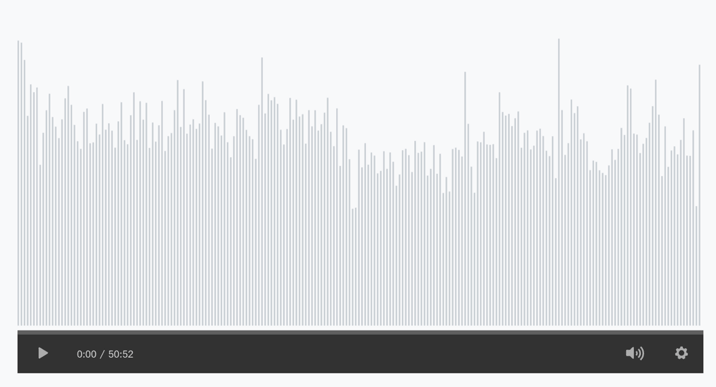I celebrated Native American Heritage Month by ruining a comedy podcast

Last week, I guested on the popular Earwolf series How Did This Get Played, a weekly comedy podcast dedicated to reviewing the worst and weirdest video games. The show’s hosts, Nick Wiger and Heather Anne Campbell, and I know each other through the Los Angeles comedy community, and their producer, Matt Apodaca, is someone whom I’ve performed many shows with and consider a friend. As a comedy writer (I’ve written on shows for Nickelodeon, Cartoon Network, and a bunch of other places) and as a hardcore gamer (I once faked pneumonia for a month in middle school so I could focus on beating Chrono Trigger for the Super Nintendo), this seemed like a match made in heaven. But when I received the email invitation, my face dropped.
Native American people are so poorly represented in the media that we’re referred to as an “invisible minority,” and Nick, Heather, and Matt wanted me, as the first and only Native person invited on How Did This Get Played, to review Custer’s Revenge—an old Atari game where the player, as the ghost of General Custer, rapes a Native American woman for points—for a special Thanksgiving episode. I had two options in responding to this ill-conceived invitation. I could say no, and kick the can down the road for the next unsuspecting Native guest, passing on a legacy of microaggressions for future Native comedians to deal with from here to eternity. Or I could go on the show and risk my career.
There are few things I’d like to do less then navigate the minefield of a conversation about race in 2019. Especially with comedians who, kind though they may be, are more experienced and connected, in an industry where jobs are largely given to friends and being labeled “hard to work with” can be game over. I’ve invested 20 years of my life into this trade, and I’m one of only a few dozen Native American comedians in the country. The Natives who are regularly asked to guest on popular comedy podcasts can be counted on less than a single hand. If I didn’t approach this conversation exactly right, I could be destroying a small, but crucial keyhole that we have into mainstream media.
The easy and all too common thing to do when confronted with this type of racial misstep would be to screencap the invitation, post it on Twitter, and bathe myself in internet mob justice like hot shower water on a cold morning. The hard thing to do would be to calmly educate Nick, Heather, Matt, and their listeners about why what they did was wrong. The first option is tempting, but dunking on people won’t change their minds. The second option, to have a serious dialogue, is harder than beating Brock Lesnar at WrestleMania with my hands tied behind my back. Would Nick and Heather even engage in this difficult conversation or would they brush if off like the millions of internet commenters who treat even the smallest amount of criticism like Dracula treats garlic? I had one shot at this, and if I wanted the conversation to be anything less than a total disaster, I had to thread a needle the size of an anthill with a piece of thread thicker than the Golden Gate Bridge.
As a 5-foot, 10-inch comedian built like a piece of dried discount spaghetti, I’m not a confident person. Confrontation of any kind gives me a full-body migraine. One of my greatest fears is the uncomfortable fallout after misremembering an acquaintances’ name. If I confronted a bunch of successful comedians, on microphone, about their astronomical racial blind spot, I needed to come prepared. The six days between accepting the invitation and the recording was like a week-long Rocky montage, if instead of running up the steps of a courthouse, Rocky just argued with himself in his car.
I wasn’t excited about blindsiding them with a conversation they’d earned, but weren’t expecting. Heather and Nick are both well-meaning people and though we aren’t close, they were some of my first sketch-comedy writing teachers when I first moved to Los Angeles and were influential in helping shape my early comedic voice. Two days before recording, I emailed to tell them that I was bringing a serious discussion about Native American representation to their show, which they said they were ready for. Based on the enthusiasm of their response, I knew they had no clue the gravity of what they’d done, or the metric ton of lessons I was about to shovel their way.
On podcast day, I was a mess of adrenaline and righteous fury. An hour before the show, I listened to the entrance music from my favorite All Elite Wrestling tag team, Proud And Powerful, as I put on my favorite button-up shirt. Ten minutes before the recording, I sat in my car in the Denny’s parking lot near the Earwolf studios praying that I was doing right for myself, and my community. Thirty seconds before recording, Nick, Matt, Heather, and I had a nice catch-up conversation about our lives and careers as I wiped my sweaty, shaking palms on my jeans under the table.
Twenty-four minutes into the episode, as we started discussing the game, I paused, took a deep breath, and with a nervous voice, I listed off the upsetting circumstances with which I’d been asked to guest on the show, punctuated with a stone cold serious, “What the fuck?”
The following two paragraphs are both a summary of my thoughts on the recording and pretty much exactly what I told Matt, Heather and Nick live in that cramped podcasting booth.
 Keep scrolling for more great stories.
Keep scrolling for more great stories.
